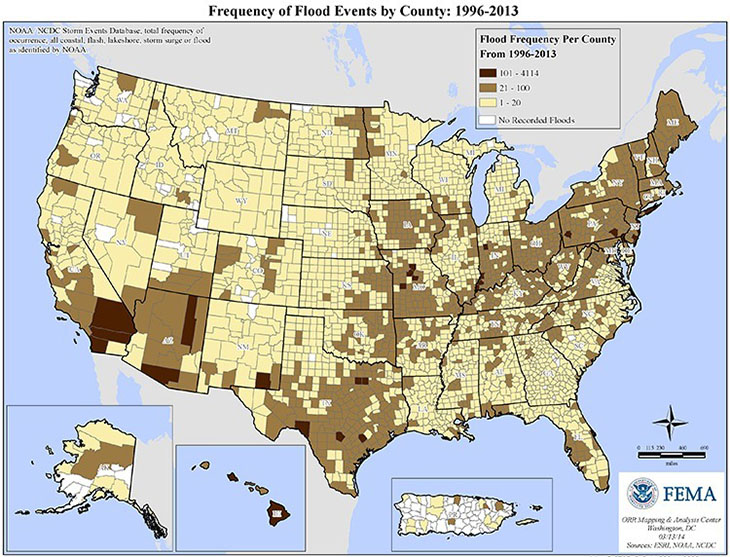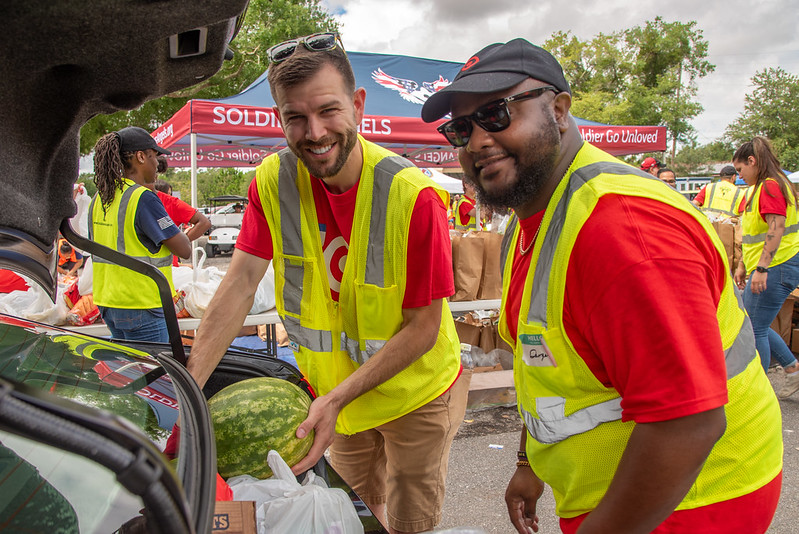April is National Preparedness Month, the perfect time for Veterans and their families to plan ahead for what they may need to stay safe, healthy, informed and independent during a natural or man-made disaster.
While “April showers, bring May flowers” springtime down pours can cause major flooding in many parts of the country. There is no time better than now, to be prepared.
Flooding is a coast-to-coast threat to the United States and its territories nearly every day of the year. If you know what to do before, during, and after a flood can increase your chances of survival.
- Create a communications plan
- Assemble an emergency kit
- Sign up for notifications
- Prepare your house
- Prepare your family/pets
- Charge your essential electronics
- Stay informed
- Get to higher ground
- Obey evacuations orders
- Practice electrical safety
- Avoid flood waters
- Stay informed
- Avoid flood waters
- Avoid disaster areas
- Heed road Closures
- Wait for the “All Clear”
- Contact family and loved ones
- FEMA’s National Flood Insurance Program
When to be aware, when to take action:
- Flash Flood Warning: Take action! A Flash Flood Warning is issued when a flash flood is imminent or occurring. If you are in a flood prone area move immediately to high ground. A flash flood is a sudden violent flood that can take from minutes to hours to develop. It is even possible to experience a flash flood in areas not immediately receiving rain.
- Flood Warning: Take action! A Flood Warning is issued when the hazardous weather event is imminent or already happening. A Flood Warning is issued when flooding is imminent or occurring.
- Flood Watch: Be prepared: A Flood Watch is issued when conditions are favorable for a specific hazardous weather event to occur. A Flood Watch is issued when conditions are favorable for flooding. It does not mean flooding will occur, but it is possible.
- Flood Advisory: Be aware: An Flood Advisory is issued when a specific weather event that is forecast to occur may become a nuisance. A Flood Advisory is issued when flooding is not expected to be bad enough to issue a warning. However, it may cause significant inconvenience, and if caution is not exercised, it could lead to situations that may threaten life and/or property.
Flood-related hazards
- Storm surge
- Debris flows
- Ice/debris jams
- Snow melt
- Dry wash
- Dam break or levee failure
Flood facts
- In the United States alone, floods do about $6 billion worth of damage and kill about 140 people each year.
- Roughly 75 percent of all presidential disaster declarations are associated with flooding.
- Two feet of moving water can sweep a vehicle away.
Veterans interested in combining their military skills and experiences with those of first responders to help in times of disaster, might consider Team Rubicon for volunteering opportunities as well as those with the American Red Cross.
About the author: This article was submitted to VAntage Point by VA’s Office of Operations, Security and Preparedness.
Topics in this story
More Stories
Soldiers' Angels volunteers provide compassion and dedication to service members, Veterans, caregivers and survivors.
Veterans are nearly three times more likely to own a franchise compared to non-Veterans.
The Social Security Administration is hoping to make applying for Supplemental Security Income (SSI) a whole lot easier, announcing it will start offering online, streamlined applications for some applicants.







All that you indicated in your information, has made me much more disaster ready. Thank you.
thanks alot for this usefull information i realy love to read from your blog tomorow disaster i’m ready